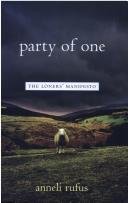Once upon a time, the idea of “the loner” extended beyond the way the term is nearly universally used in media today: for destructive psychopaths, after they’ve unleashed some horror or other. I carried on a little bit earlier about the Virginia Tech official who first uttered the term in connection to Cho Seung-Hui. It was true as far as it went — and that wasn’t far at all, as Cho demonstrated both in action and in his special delivery to NBC the other day.
Anyway. Didn’t the idea of the loner once carry an aura of austere self-sufficiency, hardy individuality or at least admirable anti-heroism? In recent decades in pop culture, Clint Eastwood’s the type, especially in the Sergio Leone remakes of the Kurosawa epics. Further back, Humphrey Bogart owned the image in his Philip Marlowe and Sam Spade roles. Film noir is the loner’s genre. I could take a leap backward from there to the James Fenimore Cooper novels and his Hawkeye character. Same thing, though incredibly trying in book form. [Belatedly, I note that all the example characters above carry guns.]
But those are sort of limited, shot-in-the-dark examples and ones that rely on the distortion and romance of fiction. I went looking for a little more evidence and context, and came upon the noble example of “The Loner,” a one-season, mid-’60s western series starring Lloyd Bridges (and created by Rod Serling). Then there’s Neil Young’s “The Loner,” which focuses on the menacing stranger. Still a long way off from real life.
Finally, I hit on this, through Google Books: “Party of One: The Loners’ Manifesto.” It’s by Anneli S. Rufus, a Berkeley writer Kate and I know from our time, during the relatively enlightened and carefree days of the Reagan era, at The Daily Californian. It’s a serious consideration of the idea of the loner in history, in culture, in society. An excerpt from the introduction:
“Loners, by virtue of being loners, of celebrating the state of standing alone, have an innate advantage when it comes to being brave — like pioneers, like mountain men, iconoclasts, rebels and sole survivors. Loners have an advantage when faced with the unknown, the never-done-before and the unprecedented. An advantage when it comes to being mindful like the Buddhists, spontaneous like the Taoists, crucibles of concentrated prayer like the desert saints, esoteric like the Kabbalists. Loners, by virtue of being loners, have at their fingertips the undiscovered, the unique, the rarefied. Innate advantages when it comes to imagination, concentration, inner discipline. A knack for invention, originality, for finding resources in what others would call vacuums. A knack for visions. A talent for seldom being bored. Desert islands are fine but not required.”
The Anneli lives less than two miles from us as the crow flies. I haven’t seen her in 25 years, since before she was Anneli. Now I know one reason why. But just one.
=

